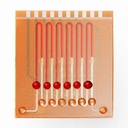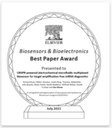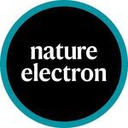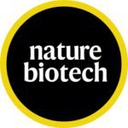The Disposable Microsystems group is delighted to announce that our PhD student, H. Ceren Ates, has been honored as the laureate of the Women Interactive Materials Award in recognition of her contributions to the field of biosensors for on-site therapeutic drug monitoring.
The Disposable Microsystems group is excited to announce its latest publication, a Personal View article, entitled “A three-level model for therapeutic drug monitoring of antimicrobials at the site of infection” in Lancet Infectious Diseases.
Research team from Freiburg led by microsystems engineer Dr. Can Dincer introduces a biosensor for the nucleic acid amplification-free detection of SARS-CoV-2 RNA
Recent review on “End-to-end design of wearable sensors” from the Junior Research Group “Disposable Microsystems” is highlighted on the cover of new Nature Reviews Materials issue.
Young Scientist Award honors development of biosensor for monitoring antibiotic concentration in the various body fluids
Recent research article “Biosensor-Enabled Multiplexed On-Site Therapeutic Drug Monitoring of Antibiotics” from the Junior Research Group “Disposable Microsystems” is highlighted on the inside front cover of new Advanced Materials issue.
Freiburg researchers are testing a biosensor for personalized dosing of medications
The recent paper on CRISPR-Biosensor X from Dr. Can Dincer's team was awarded the international Biosensors and Bioelectronics Best Paper Award 2020/2021.
"Facemask-integrated Covid-19 tests: this is what biosensors can do." Ralf Caspary in an interview with microsystems engineer Dr. Can Dincer.
Recent review on Integrated Devices for Non‐Invasive Diagnostics from the Laboratories for Sensors and MEMS Applications, is highlighted on the back cover of new Advanced Functional Materials issue.
H. Ceren Ates and Dr. Can Dincer were invited to write a News & Views for Nature Electronics, about “Wearable devices for the detection of COVID-19”.
Recent review on On-site Therapeutic Drug Monitoring from the Laboratory for Sensors is highlighted on the cover of new Trends in Biotechnology issue.
Recent News article in Nature Biotechnology highlights two different research activities of Dr. Can Dincer.
Can Dincer has developed a method for detecting molecules that are markers of disease in exhaled breath
Research article from the Laboratory for Sensors is highlighted on back cover of the new Advanced Materials issue: CRISPR/Cas13a‐Powered Electrochemical Microfluidic Biosensor for Nucleic Acid Amplification‐Free miRNA Diagnostics.
Microsystems engineer Dr. Can Dincer was awarded the Adolf Martens Prize 2018.
Researchers present sensor prototype that can rapidly, precisely, and cost-effectively measure molecular signals for cancer
Dr. Can Dincer has been invited to join the editorial team of Biosensors and Bioelectronics as an Associate Editor.
Richard Bruch, Prof. Gerald A. Urban and Dr. Can Dincer were invited to write a News & Views for Nature Biomedical Engineering.
The Max Planck Society has granted €1.52 million in funding to a project for studying hormones in birds
Initial clinical tests show that biosensors could pave the way for a personalized antibiotherapy in the future
Microsystems engineer Can Dincer wins the second prize at Gips-Schüle young scientist competition
Researchers from Freiburg have developed a sensor platform that quantifies antibiotics in human blood within minutes























